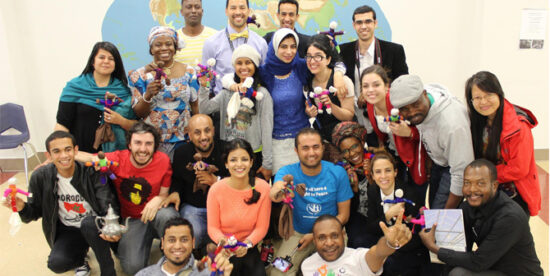
The United States is committed to countering extremism in every part of the world together with the allies and partners at home and abroad. Speaking at the Leaders’ Summit on Countering ISIL and Violent Extremism in 2015, President Obama pointed out that defeating extremism in the battlefield was not going to be enough. “We have to prevent…radicalization in the first place. This means defeating their ideology… which is not defeated with guns, it’s defeated by better ideas – a more compelling vision.” President Obama’s point highlights the importance of public diplomacy as a strategic tool. Photo courtesy of the Global Minnesota.
The most recent U.S. Department of State Strategic Plan lists protecting U.S. interests worldwide by countering extremism and strengthening civil societies through community building as key priorities. Therefore, the Advisory Commission on Public Diplomacy (ACPD) invited Assistant Secretary of Defense for Special Operations/Low-Intensity Conflict, Michael Lumpkin, to speak on the growing importance of countering extremism and how the Global Engagement Center will more effectively coordinate and synchronize messaging to foreign audiences to foster community resilience and inclusion to combat extremism.
Lumpkin, the future head of the Center, said that it will take a multi-layered approach to shaping and disseminating messages to counter extremist communications. According to Lumpkin, the information battle space is equally important as the physical battle space, and while the U.S. government has a good message, it is not always the best messenger. The Center will focus on establishing and building new partnerships with governments and civil society groups that have insider knowledge of their communities. It will empower them to speak out against groups that promote intolerance, and offer an alternative to extremist visions.
This talk initiated by the ACPD is one of the many ways soft power and public diplomacy are being used as a tool for countering extremism. The Bureau of Educational and Cultural Affairs (ECA) has increased implementing exchange programs with the topic of countering extremism and community resilience. In addition, this August 18 the conversation continues on a local level, with a Diplomacy Begins Here summit hosted by Global Minnesota. The summit will unite an extensive network of civil society partners and globally-minded federal, state, and local elected officials to create a thoughtful, well-balanced exploration of the ways in which immigrant populations from and exchanges with Middle Eastern countries are remarkably beneficial to the U.S.
By Jelena Putre, Senior Program Manager, Grants, Global Ties U.S.
